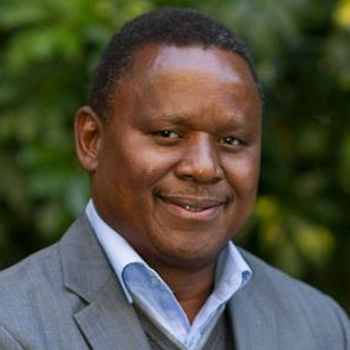DOCTOR OF PHILOSOPHY (HONORIS CAUSA)
 Frank Chikane matriculated from Orlando High School in Soweto in 1971 and proceeded to the University of the North (Turfloop), now the University of Limpopo, in 1972 to study science.
Frank Chikane matriculated from Orlando High School in Soweto in 1971 and proceeded to the University of the North (Turfloop), now the University of Limpopo, in 1972 to study science.
Following the Frelimo Rally in 1974 which lead to the arrest of student leaders, and forced some students into exile, Chikane was made leader of the Student Aid Committee which played the role of the SRC. He gave evidence on behalf of the students at the Snyman Commission on the unrest on campus, and due to his role as a leader, was advised not to return to the university for his own safety.
After leaving university he taught Mathematics and Physical Science at Naledi High School in Soweto, but the Security Police put pressure on the school to force him to leave. He then joined Christ for all Nations (CFAN) in 1975, convinced of God's calling in his life. Again, the security establishment threatened CFAN and he left to work as an evangelist with his church, the Apostolic Faith Mission (AFM). In 1979, he completed his training as a pastor at the AFM and was ordained in March 1980. He was subsequently defrocked in 1981 due to his political involvement and reinstated with an apology nine years later in 1990.
Chikane was detained and severely tortured on various occasions between 1977 and 1982. He was part of the founders of the United Democratic Front (UDF) and served as its Vice-President from 1983 to 1985. In February 1985 he was arrested, charged and tried for treason with sixteen other leaders of the UDF, including Albertina Sisulu, and was acquitted in December of the same year. He later continued his education, obtaining a master’s degree in Religious studies from the University of Natal (now Kwa-Zulu Natal) and a master’s in Public Administration from the Kennedy School of Government, Harvard University.
He served as a Co-ordinator and then Director at the Institute of Contextual Theology (ICT) from 1981 to 1987 when he was appointed General Secretary of the South African Council of Churches (SACC), replacing Dr Beyers Naudé. He had the task of carrying the organisation through the most challenging times characterised by the worst forms of repression, gross violation of human rights and violence. Following the bannings and restrictions imposed on most organisations in 1988, the SACC became the only voice of the people. Consequently, its Headquarters was bombed and Chikane’s clothes were laced with a chemical weapons substance which nearly led to his death. He played an important role during the negotiation period, and transition from apartheid to a democratic South Africa, including serving as a Commissioner of the Independent Electoral Commission (IEC) which ushered in the new democratic order. Chikane’s influence in the 1980s and the 1990s cannot be overstated.
He became a Special Advisor to Deputy President, Thabo Mbeki, in 1995; was appointed Director General in the Office of the Deputy President in 1996, and a Deputy Secretary of the Cabinet in 1998. After the 1999 elections he was appointed Director General in the Presidency and Secretary of the Cabinet, where he remained until 2009. He was also elected to the National Executive Committee (NEC) of the ANC in 1997.
He has published several articles and books including his 1988 autobiography No Life of My Own, his 2012, Eight Days in September: The Removal of Thabo Mbeki, which was preceded by the so-called ‘Chikane Files’ published in several Independent newspapers, and his 2013, Things That Could Not be Said.
Other positions and accolades bestowed on Rev Chikane include his appointment as a Senior Research Fellow in the Department of Religious Studies at UCT, President of the AFM International, the Swedish Diakonia Peace Prize for Outstanding Theology Contribution for Justice and Peace in SA and the Peace and Freedom Prize from the Swedish Labour Movement. He has served in various boards of companies and continues to do so. He now serves as Moderator of the Churches Commission on International Affairs (CCIA) of the World Council of Churches (WCC) which deals with conflict areas globally.
For his contribution as a servant leader, his tireless pursuit of justice, peace, conflict resolution and reconciliation; establishing the architecture of democratic governance in a post-apartheid state; developing and promoting the vision of the African Renaissance and consistently placing people at the centre of socio-economic development, it is an honour for Nelson Mandela University to confer the degree of Doctor of Philosophy (honoris causa) on Reverend Frank Chikane.